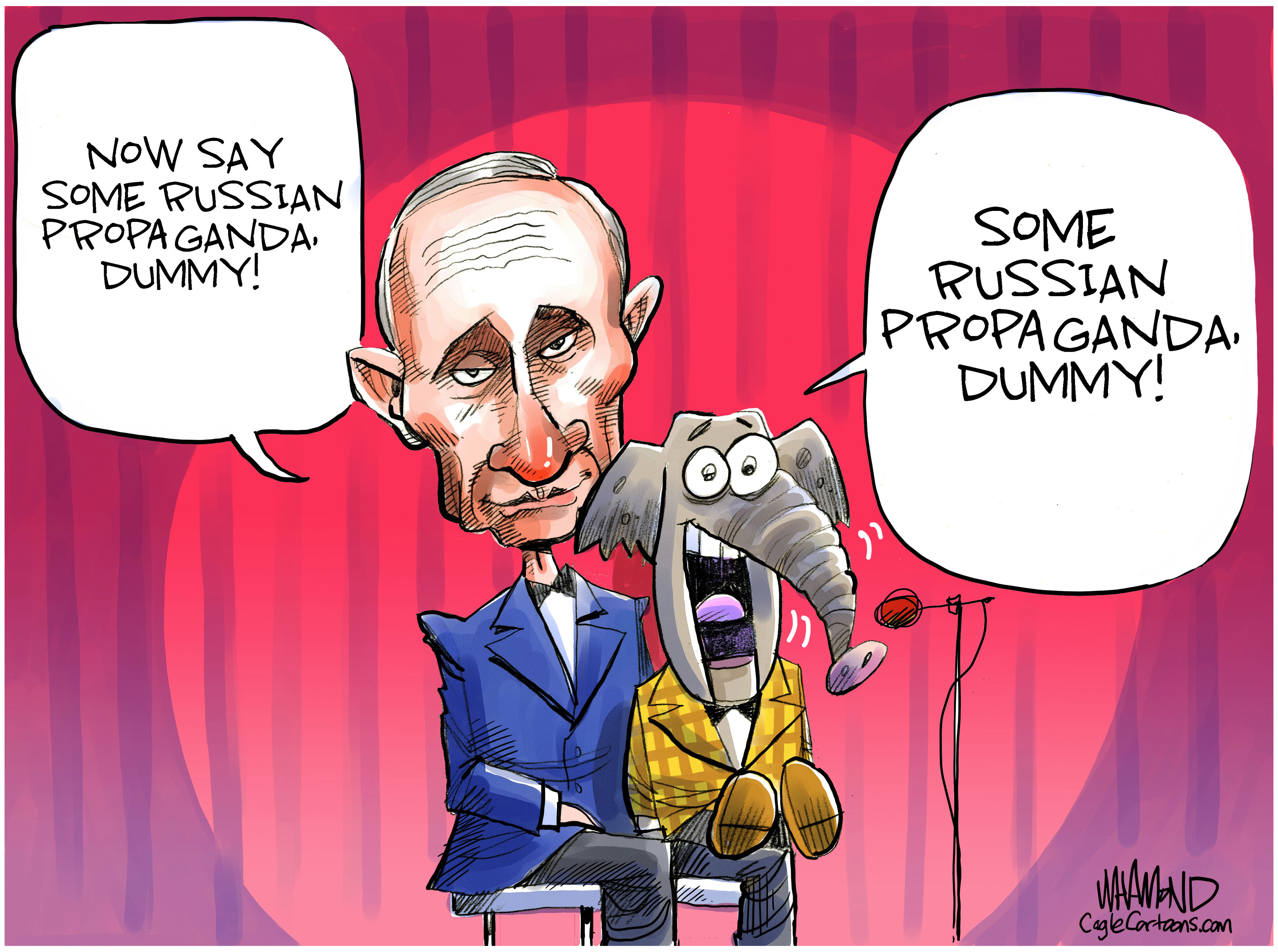|
In Russia, ‘Yes, I can!’ is now, sadly, ‘No, I won’t!’ |
 |

John Freivalds
Local View
When Carlson Group was building the Radisson Daugava Hotel in Riga, Latvia, in the early 1990s — the first five-star hotel and biggest in the Baltics — the company had to figure out who would manage it. Chosen was Art Krieger, a hulking 6-foot-4 Canadian who also opened and managed Radisson hotels for the Carlson Group in Australia; Sochi, Russia; St. Paul; Beijing; and Baltimore.
More than 3,000 people applied for the 300 jobs the Radisson Daugava advertised. Krieger immediately eliminated any applicant who had anything to do with Intourist, the Russian travel agency; Aeroflot, the Russian airline; or anyone from the Russian hospitality industry. Latvia had just become independent after 50 years of Russian occupation and wanted to look to the West and not to the East.
Krieger instituted a program in Riga that he called “Yes, I can!” He recognized that many of his guests would be jet-lagged and from different parts of the world and would have special needs. So, if they woke up at 3 a.m., for example, and wanted scrambled eggs, the hotel wouldn’t rudely tell them, “The restaurant opens at 9.” Instead, they’d say, “Yes, I can!” and then go make scrambled eggs. He also always told his employees to smile. Thus, a smiling pandemic began.
Krieger was in Riga for five years and was much loved by the staff. Unfortunately, those employees started being eagerly snapped up by newer hotels in Moscow, just 500 miles away. Russians are incredibly rude; I know, as I have run businesses in Riga and in Moscow. One Russian apologist for this wrote in April 2020, “If you face rude service in Russia, don’t be offended. Just take into account that for 70 years, the Soviet Union taught people to live in equality and some people just can’t stand serving others.”
Undaunted by what people said, another Canadian, George Cohon, a McDonald’s franchisee, got the idea to open the first McDonald’s in Moscow in 1990. A book worth reading is “To Russia with Fries,” by Cohon and David Macfarlane. Cohon’s employees were taught to smile, wear clean uniforms, and be pleasant. Yikes! A writer for CNN wrote that before “McDonald’s came in, food service was really rude. Places were dirty. There often was no food that was listed.”
The arrival of McDonald's in Moscow was about more than Big Macs and fries, as noted food scholar Darra Goldstein and others at Williams College in Massachusetts determined. The arrival was the most prominent example of glasnost in action, which was Soviet President Mikhail Gorbachev’s attempt to open up his crumbling country to international relations, they found.
Thus, on McDonald’s opening day in Moscow, 30,567 people were served, a world record. Consumers even loved the packaging and took it home and hung it on their walls. Like politics, taste, after all, is still local. That restaurant also served shrimp rolls, cherry-currant punch, and syrniki (cheese pancakes). McDonald’s grew to 850 restaurants in Russia, with even 20 in desolate Siberia!
McDonalds and many other Western companies have now halted operations inside Russia in opposition to the nation’s barbaric war in Ukraine. Due to Russian misinformation, more than half of all Russians think highly of what their President Vladimir Putin is doing. Getting rid of Nazis is one of Putin’s lines — the same lie used to invade Latvia 70 years ago!
Putin is happy, for he didn’t like Russia getting too Western or Russians smiling or getting ideas about making things better for consumers. Let’s see if that works for him as, “No, I won’t!” seems to be his motto.
John Freivalds of Wayzata, Minnesota, is the author of six books and is the honorary consul of Latvia in Minnesota. His website is jfapress.com. He wrote this for the News Tribune.
